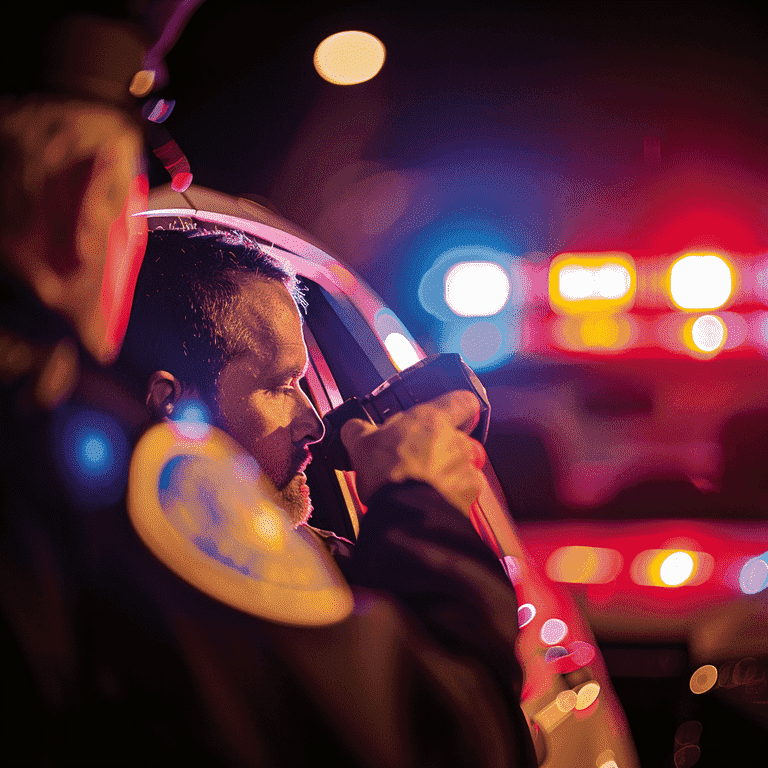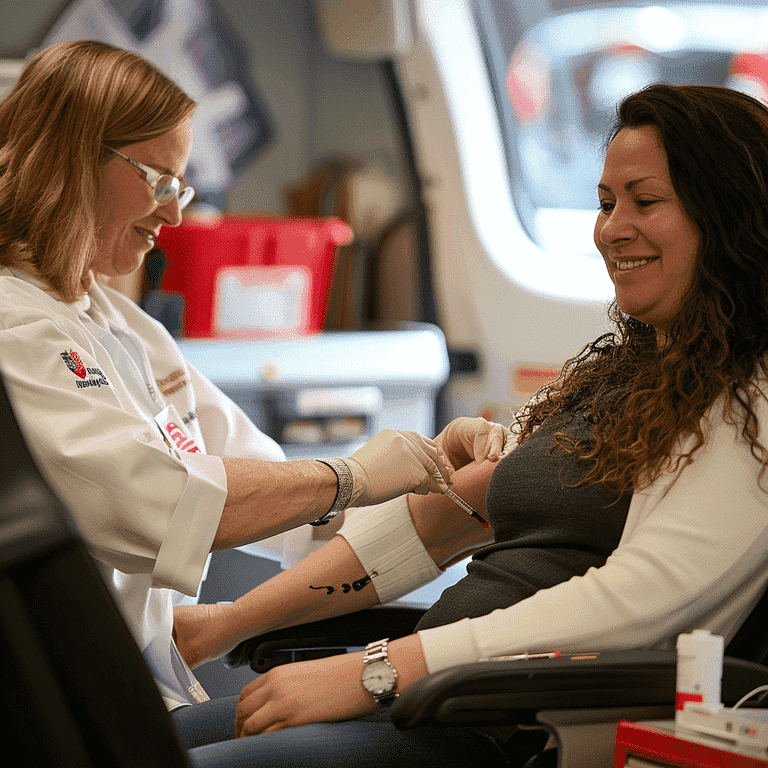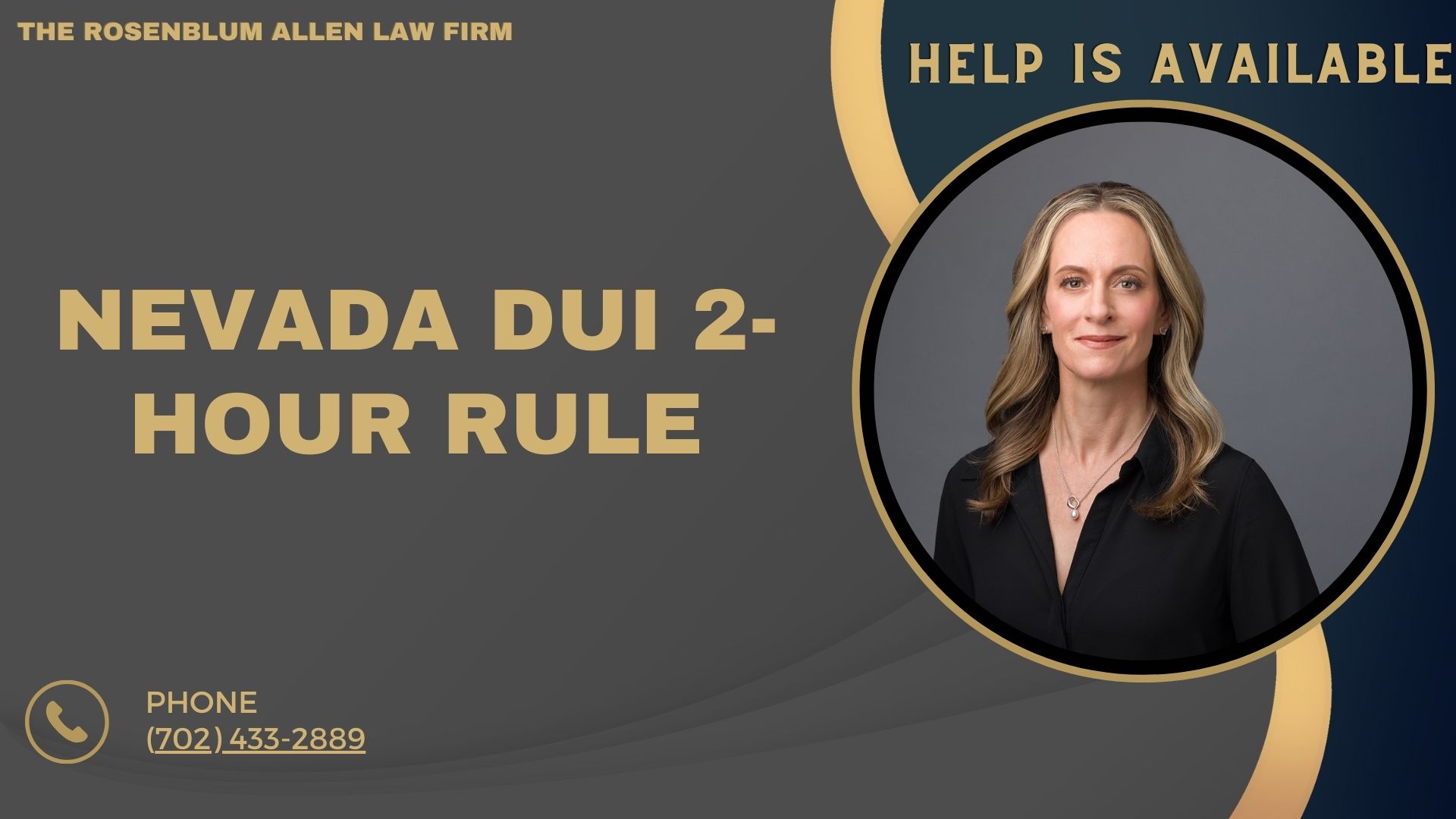Nevada has strict laws regarding driving under the influence (DUI). One critical aspect of these laws is the “Nevada DUI 2-hour rule.” This rule can make or break a case, so it’s essential to understand it fully. Knowing how this rule works can help you avoid severe penalties, whether you’re a resident or just visiting.
What is the Nevada DUI 2-Hour Rule?
The Nevada DUI 2-hour rule states that if you’re suspected of driving under the influence, your blood alcohol concentration (BAC) must be tested within two hours of driving. This rule ensures the accuracy of the test results and helps establish whether you were over the legal limit while driving.
Definition and Explanation of the Nevada DUI 2-hour Rule
The 2-hour rule means that law enforcement has a limited window to administer a BAC test after you’ve been stopped. If the test is conducted within two hours of driving, the results are presumed to reflect your BAC when you were behind the wheel.
Legal Context and Relevance
This rule is part of Nevada’s efforts to curb drunk driving. By setting a strict timeframe for testing, the state aims to provide clear and reliable evidence in DUI cases. The 2-hour rule also helps protect drivers’ rights by requiring prompt tests.
Legal Framework and Statutory Provisions
To fully grasp the 2-hour rule, it’s essential to understand the broader legal framework of Nevada’s DUI laws. These laws outline DUI cases’ procedures, penalties, and rights.
Overview of Nevada DUI Laws
Nevada’s DUI laws prohibit operating a vehicle with a BAC of 0.08% or higher. For commercial drivers, the limit is 0.04%, and for drivers under 21, it’s 0.02%. These laws apply whether you’re driving on public roads or private property.
Specific Statutes Related to the 2-Hour Rule
The critical statute governing the 2-hour rule is Nevada Revised Statutes (NRS) 484C.150. This statute specifies that a person may be tested within two hours of driving to determine their BAC.
Nevada Revised Statutes (NRS) Section Details
- NRS 484C.150: This section explains the conditions under which BAC tests can be administered and highlights the 2-hour window.
- NRS 484C.110: This section outlines the illegal BAC limits for different categories of drivers.
Key Legal Terms and Their Meanings
- BAC (Blood Alcohol Concentration): The alcohol percentage in a person’s bloodstream.
- Implied Consent: By driving in Nevada, you automatically consent to BAC testing if you are suspected of DUI.

Implications of the 2-Hour Rule in DUI Cases
The 2-hour rule plays a significant role in DUI cases. Understanding its implications can help you better navigate these situations.
How the 2-Hour Rule Affects DUI Arrests
The clock starts ticking when you’re pulled over for a suspected DUI. Law enforcement must conduct a BAC test within two hours of your driving. If they miss this window, the results might not be as reliable.
Time Frame for Administering Blood Alcohol Tests
Officers need to act quickly. They usually start with a breath test at the scene. They might take you to a medical facility for a blood test if necessary. The goal is to ensure the test happens within two hours.
Legal Presumption of Intoxication Within 2 Hours of Driving
If your BAC is over the legal limit within the two-hour window, it’s presumed you were intoxicated while driving. This presumption makes it easier for prosecutors to prove their case. However, your defense attorney might challenge the results if the test happens after two hours.
Exceptions and Defenses to the 2-Hour Rule
The Nevada DUI 2-hour rule is strict, but there are exceptions. Understanding these can be vital in a DUI case. Knowing the possible defenses can also help if you are in this situation.
Standard Exceptions to the 2-Hour Rule
Several situations might cause testing to be delayed beyond the two-hour window. These exceptions can impact the admissibility of BAC test results.
- Medical Emergencies: If you or someone else involved in the incident requires urgent medical attention, this can delay testing.
- Law Enforcement Procedures: Sometimes, law enforcement procedures or other unavoidable delays can push the test beyond two hours.
Potential Defenses in DUI Cases
There are several ways to challenge DUI charges based on the 2-hour rule. Here are some common defenses:
- Challenging the Test Timing: The results might be questioned if the test was conducted outside the two-hour window.
- Questioning the Accuracy of the Test Results: The reliability of the test can be disputed based on the equipment used or the handling of the sample.

Procedures for DUI Testing Under the 2-Hour Rule
Understanding the procedures for DUI testing can help you know what to expect and how to protect your rights. Here’s a breakdown of what typically happens.
Standard Procedures for DUI Testing in Nevada
When you are stopped for a suspected DUI, officers follow specific procedures to test your BAC.
- Breath Tests: These are usually conducted at the scene using a breathalyzer.
- Blood Tests: If a breath test is impossible or more accuracy is needed, you might be taken to a medical facility for a blood test.
- Urine Tests: These are less common but may be used in certain situations.
Protocols for Ensuring Accuracy and Reliability of Tests
Ensuring DUI tests are accurate is vital for law enforcement and the defense.
- Calibration and Maintenance of Testing Equipment: Breathalyzers and other testing equipment must be regularly calibrated and maintained.
- Chain of Custody for Blood Samples: Proper handling and documentation of blood samples are essential to prevent contamination or tampering.
Legal Consequences of Violating the 2-Hour Rule
Violating the 2-hour rule can have significant legal consequences. Understanding these consequences can help you navigate the legal system more effectively.
Penalties for DUI Convictions in Nevada
Nevada imposes strict penalties for DUI convictions. These penalties vary based on whether it’s a first-time or repeat offense.
- First-Time Offenses: Penalties might include fines, community service, DUI school, and possible jail time.
- Repeat Offenses: Penalties increase significantly with subsequent offenses, including longer jail time, higher fines, and mandatory treatment programs.
Additional Consequences Related to the 2-Hour Rule
The 2-hour rule can affect the admissibility of BAC test results in court.
- Impact on the Admissibility of Test Results: If the test is conducted outside the two-hour window, it might be excluded from evidence.
- Possible Reductions in Charges or Penalties: Challenging the test results can sometimes lead to reduced charges or penalties.
How to Protect Your Rights in a DUI Case
Knowing how to protect your rights if you’re arrested for DUI in Nevada is essential. Here are some steps you can take.
Steps to Take if Arrested for DUI in Nevada
Staying calm and knowing your rights can make a big difference if you’re pulled over for DUI.
- Immediate Actions: Cooperate with the officer, but remember you can remain silent and request an attorney.
- Legal Advice and Representation: Contact a DUI attorney as soon as possible to help you navigate the legal process.
Importance of Understanding and Leveraging the 2-Hour Rule
Understanding the 2-hour rule can provide a strategic advantage in your defense.
- Strategic Considerations for Defense: Your attorney can use the timing of the BAC test and any delays to build a strong defense.
Knowing these procedures and potential defenses can help you better protect yourself if you ever face a DUI charge in Nevada.
How to Protect Your Rights in a DUI Case
Knowing how to protect your rights if you’re arrested for DUI in Nevada is essential. Here are some steps you can take.
Steps to Take if Arrested for DUI in Nevada
Staying calm and knowing your rights can make a big difference if you’re pulled over for DUI.
- Immediate Actions: Cooperate with the officer, but remember you can remain silent and request an attorney.
- Legal Advice and Representation: Contact a DUI attorney as soon as possible to help you navigate the legal process.
Importance of Understanding and Leveraging the 2-Hour Rule
Understanding the 2-hour Rule can provide a strategic advantage in your defense.
- Strategic Considerations for Defense: Your attorney can use the timing of the BAC test and any delays to build a strong defense.
Knowing these procedures and potential defenses can help you better protect yourself if you ever face a DUI charge in Nevada.

Breaking It All Down
Navigating a DUI charge can be challenging, but understanding the Nevada DUI 2-hour rule can significantly impact the outcome. This rule is meant to ensure fairness and accuracy in DUI testing, but it also offers potential defenses if adequately leveraged. Remember, if you ever find yourself in a DUI situation, staying informed and seeking professional legal help is crucial.

Frequently Asked Questions
What is the Nevada DUI 2-hour rule?
The Nevada DUI 2-hour rule requires that your blood alcohol concentration (BAC) test be conducted within two hours of driving. This is to ensure the accuracy and reliability of the test results.
Can I refuse a BAC test in Nevada?
If you refuse a BAC test in Nevada, you may face penalties such as license suspension and other legal consequences. It’s essential to be aware of the implied consent law in Nevada, which means you agree to BAC testing when you drive on Nevada roads.
What are the penalties for a DUI conviction in Nevada?
Penalties for a DUI conviction in Nevada can include fines, jail time, license suspension, and mandatory DUI education programs. The severity of the penalties depends on factors such as your BAC level, prior DUI convictions, and whether any injuries or property damage occurred.
How can a DUI attorney help me with my case?
A DUI attorney can help you understand your rights, navigate the legal process, and develop a defense strategy. They can challenge the evidence against you, negotiate plea deals, and represent you in court to achieve the best possible outcome.
What are some common defenses against a DUI charge in Nevada?
Common defenses against a DUI charge in Nevada include:
- Challenging the accuracy of the BAC test.
- Questioning the legality of the traffic stop.
- Demonstrating that the officer did not follow proper procedures.
Your attorney will review the details of your case to identify the best defense strategy.
Can the 2-hour rule be used to dismiss my DUI case?
If the BAC test was not conducted within the required two-hour window, it could be used as a defense to challenge the accuracy and admissibility of the test results. This might lead to a reduction of charges or even dismissal, depending on the circumstances of your case.
What should I do if I believe my rights were violated during a DUI arrest?
If you believe your rights were violated during a DUI arrest, document everything you remember about the incident and share this information with your attorney. They can investigate and determine if your rights were violated and how it might affect your case.
How long does a DUI conviction stay on my record in Nevada?
A DUI conviction in Nevada stays on your record for seven years. This can impact your driving privileges, insurance rates, and employment opportunities.
Are there any alternatives to jail time for a DUI conviction?
Yes, alternatives to jail time for a DUI conviction may include house arrest, community service, and participation in DUI education or treatment programs. Your attorney often negotiates these alternatives as part of a plea deal.
What impact does a DUI conviction have on my insurance?
A DUI conviction typically results in higher insurance premiums. Insurance companies view DUI convictions as high-risk, leading to increased rates. Some insurers may also choose to cancel your policy altogether.
Can I get a restricted license if my license is suspended for a DUI?
In some cases, you might be eligible for a restricted license that allows you to drive to work, school, and medical appointments. This usually requires installing an ignition interlock device and compliance with other court-imposed conditions.
What happens if I'm caught driving with a suspended license after a DUI?
If you’re caught driving with a suspended license after a DUI, you may face additional penalties such as extended license suspension, fines, and possible jail time. It’s crucial to comply with all court orders and avoid driving until your license is reinstated.

Additional Resources for You
For more in-depth information and guidance, be sure to check out these resources by our lead attorney Molly Rosenblum Allen:

Outside Resources for You
- American Bar Association (ABA): www.americanbar.org
- National Highway Traffic Safety Administration (NHTSA): www.nhtsa.gov
- Mothers Against Drunk Driving (MADD): www.madd.org
- FindLaw: www.findlaw.com
- NOLO: www.nolo.com
- Lawyers.com: www.lawyers.com
- National Institute on Alcohol Abuse and Alcoholism (NIAAA): www.niaaa.nih.gov

A Special Message from Our Lead Attorney, Molly Rosenblum Allen, Esq

Thank you for taking the time to read our resources. I hope you found the information helpful and informative. Please schedule a free consultation if you have any questions or need further assistance. Please call (702) 433-2889 to set up your appointment.
I look forward to helping you with your legal needs.
Best regards,
Molly Rosenblum Allen, Esq.







